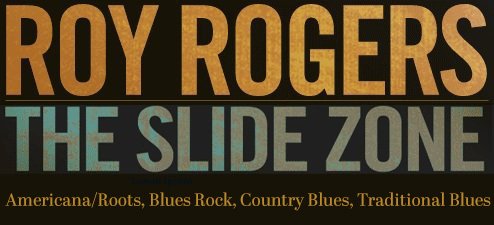By Sean McAlindin June 21, 2017
Roy Rogers, named after the famous Western singer and movie star whom his parents adored, was born in Redding and raised in Vallejo. His mother’s piano playing influenced his decision to pursue a career in music from an early age.
“I started playing guitar at age 12 and was in my first band by 13,” Rogers says. “I was a little rock ‘n’ roller back in 1963.”
June 27 | 6 p.m. | Village at Squaw | Olympic Valley
His first band was called The Newports. They played classic tunes by Chuck Berry, Little Richard and bands of the British Invasion. On stage they wore matching gold lamé jackets.
“I was in junior high, but playing in bands with older guys,” says Rogers. “I learned the rock ‘n’ roll song book, as they say.”
By the time he was old enough to take the bus into Oakland and San Francisco on his own, Rogers was attending concerts by blues legends such as Howlin’ Wolf, Muddy Waters, B.B. King and John Lee Hooker.
“It’s people being absolutely real. They’re playing something that has meaning to both you and them.” -Roy Rogers
“I saw most of the great ones,” Rogers says. “Those were the days. It was the transition period when things were shifting culturally and musically, but I was never really a fan of the psychedelic music that was happening at the time. Years later I would open for Jerry Garcia Band, but I didn’t go to a lot of those kinds of concerts. I was more so into Robert Johnson and the roots stuff. I wanted to see all the R&B greats.”
As opposed to the imaginary trips worshiped by psychedelic rockers, Rogers saw the blues as a way to connect with visceral truth.
“It’s people being absolutely real,” says Rogers. “They’re playing something that has meaning to both you and them. I always loved looking at someone up on stage who’s wailing away because they just have to. They don’t care if you like it or not. They’re not trying to be something they’re not. It’s not to be arrogant, but just because that’s the way it is.”
Thanks to a confluence of inspirations, Rogers gravitated toward his now signature style of slide guitar.
“Underground FM radio was playing a lot of blues at the time,” he says. “I had an older brother who was already playing in bands and bringing home a lot of records. ‘The King of the Delta Blues Singers’ by Robert Johnson on Columbia Records blew my mind. He was playing in open chords with a slide. I believe it’s one of the most direct and emotional ways you can play the guitar because it’s like you are mimicking the human voice. You can get all those in-between tones. There’s an old story that the reason B.B. King developed his style of trilling was because he couldn’t get the hang of slide guitar.”
In the 1980s, Rogers became a member of John Lee Hooker‘s Coast to Coast Blues Band. He has produced more than 20 albums for a variety of artists including Linda Ronstadt, Ray Manzarek, Bonnie Raitt, Steve Miller, Carlos Santana, Emmylou Harris, John Prine and Van Morrison. In 1989, he worked on “The Healer” with Hooker, which won a Grammy for Best Traditional Blues Album.
“I love collaborating,” he says. “I’m always looking for something I’ve never done. Sometimes it’s going to work and sometimes it won’t, but I’m always trying to put the elements together in a new way. Like the saying goes, our reach must always extend our grasp.”
Despite the advent of MP3s and digital streaming, Rogers still believes in the full-length LP as a viable art form
“I make records that are albums,” he says. “I want to make an artistic statement on how I do my songs, not just singles. I’m glad to see younger people going back to vinyl and listening in a different way. We’ve gone full circle. Pop music is about branding yourself as opposed to letting it all hang out. People get that this is the real deal.”
Rogers will be performing in the Village at Squaw Valley with drummer Kevin Hayes and bassist Steve Ehrmann, renowned musicians themselves who have played with Etta James, Coco Montoya and the Robert Cray Band.
“Steve is the reason that I met John Lee Hooker,” says Rogers. “We’re like brothers. These guys have been around so it’s not just two guys backing me up. It’s a great band and we love to interact, which is very important for a live show.”
For the full lineup of this summer’s Tuesdays Bluesdays, visit squawalpine.com.

